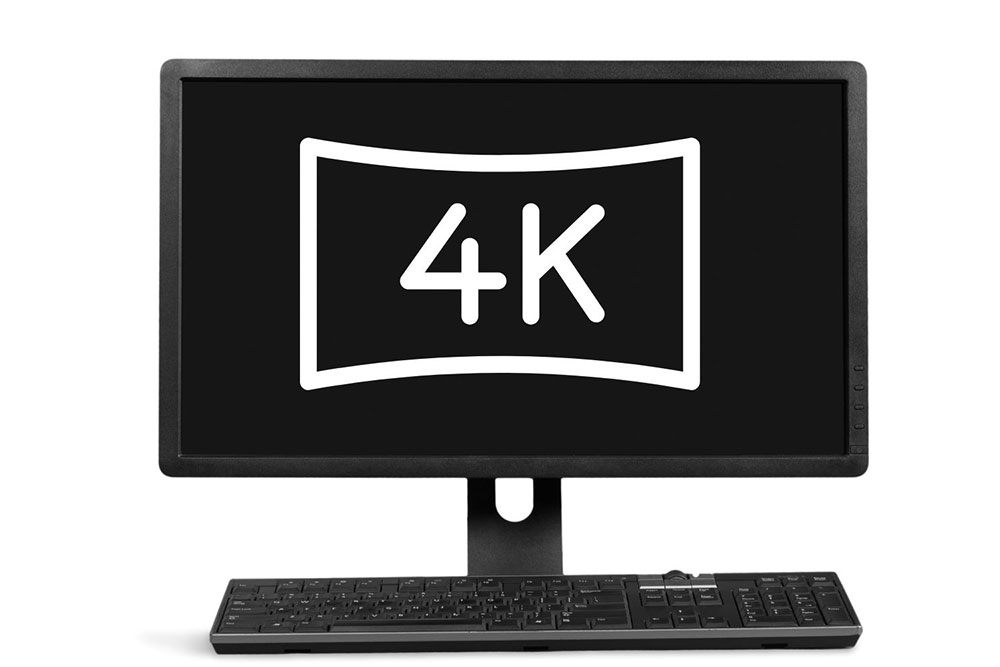Home / Handy Tips /

Over the past few years, 4K has become more affordable and more accessible – both in televisions and computer monitors. But, while TV and movie lovers can unanimously agree that 4K improves the big-screen viewing experience, what about monitors? Are 4K monitors worth it for day-to-day computer use? Let’s find out.
What is 4K?
The term 4K represents the next-gen leap in display resolution above HD (high definition or 1080p). Today, 4K is by no means the highest resolution on the market – you can purchase 8K TVs, but those will typically cost you over $10,000!
The good news is, 4K is still a massive leap if you’re accustomed to 1080p. HD is 1920 x 1080 pixels, and 4K is 3840 x 2160 pixels or four times HD.
Four times as many pixels means four times the screen real estate, and that means more windows, more tabs, and more room for whatever else you’re working on. But there is one caveat – display scaling.
4K monitors come in a whole range of sizes, but you’ll likely want a 24-, 27-, or 32-inch display. All sizes display the same number of pixels, which means different display sizes offer different pixel densities. Pixel density is measured in dots per inch (DPI).
Is 4K worth it? Here’s what to consider
Do you have the space?
For the best 4K experience, we recommend opting for a 27-inch or larger monitor – that’s a bit bigger than a standard 24-inch monitor, so you’ll need a fair amount of desk space.
It’s not just the screen to factor into your desk setup. Monitor stands can be hefty, taking up as much space as an A4 piece of paper. If you don’t have the room, you might consider a monitor arm.
Does your computer have adequate power?
Driving a 4K display can be taxing on an older or less powerful machine, especially when performing intensive tasks like playing games or rendering 3D objects in programs like Photoshop.
How much are you willing and able to spend?
There’s no doubt about it: 4K panels are cheaper than ever. But keep in mind that a low-end 4K monitor will deliver a significantly lower-quality display than a high-end 4K monitor. If, for example, you’re a video editor that requires true-to-life colour reproduction and you’re on a budget, you might be better off purchasing a lower-resolution monitor (2K) with exceptional colour grading. A cheaper 4K panel will give you a sharper display, but you might experience ghosting, latency, and dead pixels.
Why do you want 4K?
Do you want 4K for more screen real estate? If so, would you be better off investing in a second monitor? Alternatively, ultrawide monitors offer a massive boost in screen space. If you want 4K to stream higher-quality video, do you have the required internet speed?
Need help creating the ultimate computer setup?
Whether you choose a 4K monitor or not, our team is ready to help you build the ultimate battle station. For a professional new computer setup, give us a call on 1300 553 166 today. We’d be more than happy to provide personalised advice.









Leave A Comment